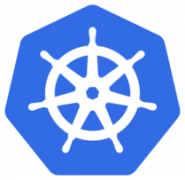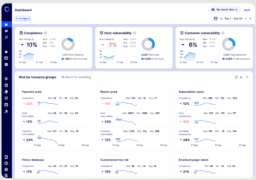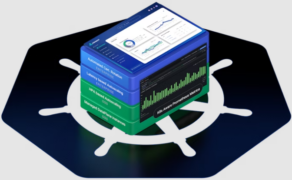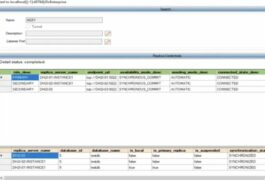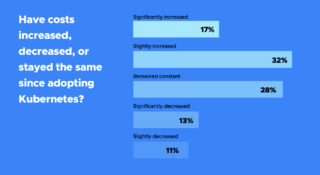Topic: kubernetes
ITOps Times Open-Source Project of the Week: Eraser
Eraser is an open source tool for cleaning up unused Kubernetes images in a cluster. “When deploying to Kubernetes, it’s common for pipelines to build and push images to a cluster, but it’s much less common for these images to be cleaned up. This can lead to accumulating bloat on the disk, and a host … continue reading
Kubernetes 1.30 is now available
The Kubernetes release team has announced that Kubernetes 1.30 is now available. It includes 45 enhancements; 17 are Stable, 18 are in Beta, and 10 are in Alpha. One of the stable features in this release is that the volume manager has been updated to allow the kubelet to populate information about how existing volumes … continue reading
Lacework launches new capabilities for securing cloud environments
The security company Lacework has announced the addition of new capabilities to its platform to help IT and security teams more easily secure their cloud environments. The first new addition is Lacework Explorer, which is designed to provide better visibility into potential threats. It provides a visualization of the relationships between cloud resources, which helps … continue reading
ITOps Times Open-Source Project of the Week: Kong Gateway Operator
Earlier this week at KubeCon + CloudNativeCon Europe 2024, Kong announced it would be open sourcing the Kong Gateway Operator (KGO) with the latest release, 1.2. With this release, all the previously released features of KGO are now open source, and new features were also added, such as managed gateways, HPA-based gateway autoscaling, and AI … continue reading
8 reasons why Crossplane is the ideal engine for internal developer platforms
Crossplane is a Kubernetes-native framework that allows organizations to manage anything using a consistent API and runtime, making it an ideal foundation for Internal Development Platforms (IDPs). Organizations typically run a complex mix of cloud and on-premise resources like databases, virtual machines and network policies. IT teams must support multiple platforms to provision and manage … continue reading
Platform Engineering is not (just) about infrastructure!
In the fast-paced and ever-changing world of technology, the term “Platform Engineering” is often subject to a narrow interpretation, confined to the spheres of infrastructure and systems management. Because of this, it could be perceived as an exclusively technical domain, dominated by servers, clusters, and networks. This limited view, however, does not give proper justice … continue reading
SUSE ATIP 3.0 introduces enhancements for telco operations
SUSE has announced the latest version of SUSE ATIP, which is a cloud infrastructure solution for telecommunications. It will be generally available in April. SUSE ATIP 3.0 introduces automated zero-touch rollout and lifecycle management for Kubernetes clusters and bare-metal infrastructure. This enables companies to scale cloud native network function deployments. It also offers integration points … continue reading
DH2i releases DxOperator for deploying SQL Server containers on Kubernetes
The IT infrastructure company DH2i has announced the release of DxOperator, which can be used to deploy SQL Server containers on Kubernetes. DH2i worked closely with Microsoft’s SQL Server team in developing this new solution. The goal behind it was to streamline the deployment process and offer customers “unparalleled ease of use, robustness, and automation … continue reading
ITOps Times Open-Source Project of the Week: EMCO
EMCO, which stands for Edge Multi-Cluster Orchestrator, is a control plane and application orchestrator for Kubernetes, enabling organizations to connect and deploy their workloads across public cloud, private clouds, and the edge, while still maintaining communication with and among applications. It intelligently assigns workloads into clusters, and interacts with the Kubernetes API server to hand … continue reading
ITOps Times Open-Source Project of the Week: Clusternet
Clusternet is a tool for managing multiple Kubernetes clusters across different environments. The goal of the project is to make management as easy as “visiting the Internet.” The interface lets you manage or visit clusters from a single place as if they were running locally. According to the project maintainers, this helps eliminate the need … continue reading
ITOps Times Open-Source Project of the Week: Capsule
Capsule is an open-source framework for implementing multi-tenant and policy-based environments in Kubernetes clusters. It was created to solve the challenge of cluster sprawl, which is when the number of clusters in an organization grows to a number that is difficult to manage. Normally, one could use the Namespace object to create partitions of a … continue reading
Report: Kubernetes responsible for increasing cloud spend
Companies are spending more and more on cloud services thanks to Kubernetes. A recent microsurvey from the CNCF revealed that for 49% of companies, Kubernetes was responsible for increased cloud spend. The microsurvey was designed by the CNCF and OpenCost team and responses were gathered between June and November 2023, with just over 100 respondents … continue reading


